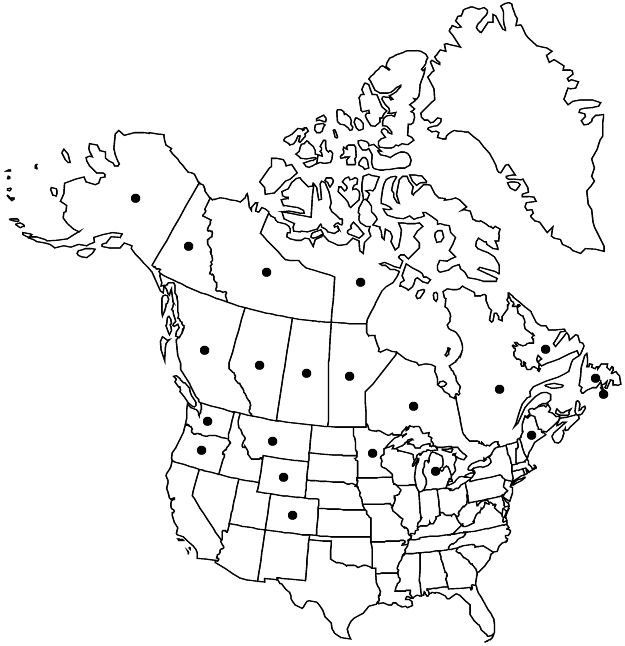Difference between revisions of "Rubus arcticus subsp. acaulis"
Biblioth. Bot. 17(Heft 72): 24. 1910.
FNA>Volume Importer |
imported>Volume Importer |
||
| (2 intermediate revisions by 2 users not shown) | |||
| Line 65: | Line 65: | ||
|publication year=1910 | |publication year=1910 | ||
|special status=Endemic | |special status=Endemic | ||
| − | |source xml=https:// | + | |source xml=https://bitbucket.org/aafc-mbb/fna-data-curation/src/2e0870ddd59836b60bcf96646a41e87ea5a5943a/coarse_grained_fna_xml/V9/V9_39.xml |
|subfamily=Rosaceae subfam. Rosoideae | |subfamily=Rosaceae subfam. Rosoideae | ||
|tribe=Rosaceae tribe Rubeae | |tribe=Rosaceae tribe Rubeae | ||
Latest revision as of 22:56, 5 November 2020
Plants 0.5–2 dm. Stems glabrous or hairy. Leaves usually ternate; petiole glabrous or hairy; central leaflets ovate to obovate, to 6 cm (lateral leaflets shorter), base cuneate, margins dentate to serrate (often doubly), apex usually rounded. Inflorescences: flowers solitary. Pedicels stipitate-glandular. Flowers: sepals caudate, glabrous or hairy, eglandular or glandular; petals pink to rose, oblanceolate to obovate, 15–25 mm, apex slightly to strongly emarginate. 2n = 14, 21.
Phenology: Flowering May–Aug.
Habitat: Muskegs, boggy woods, fens, bogs, swamps, thickets, moist tundra
Elevation: 0–3000 m
Distribution

St. Pierre and Miquelon, Alta., B.C., Man., Nfld. and Labr., N.W.T., Nunavut, Ont., Que., Sask., Yukon, Alaska, Colo., Maine, Mich., Minn., Mont., Oreg., Wash., Wyo.
Discussion
Subspecies acaulis hybridizes with Rubus pubescens (R. ×paracaulis L. H. Bailey [= R. pubescens var. paracaulis (L. H. Bailey) B. Boivin]) in areas of sympatry.
Selected References
None.